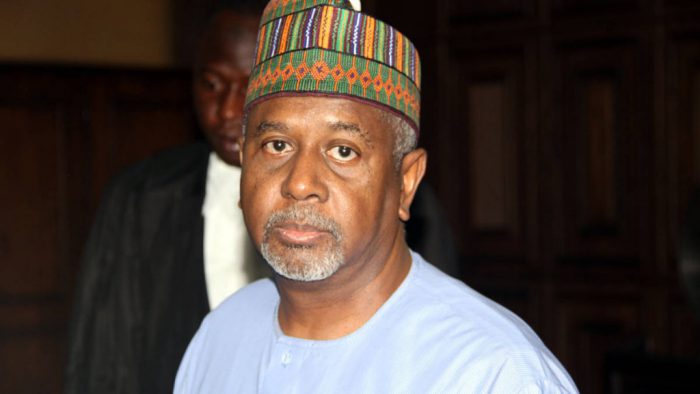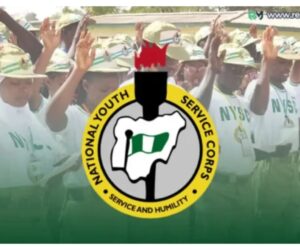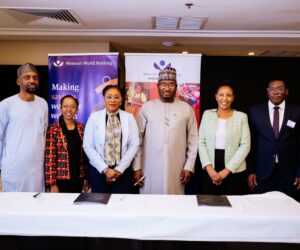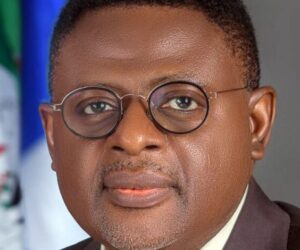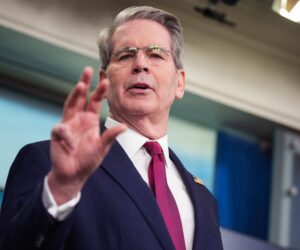The Economic and Financial Crimes Commission (EFCC) on Friday tendered more evidence in the trial of former National Security Adviser (NSA) Sambo Dasuki and three others.
Mr Dasuki, a retired colonel, and his co-defendants face 32 counts of criminal breach of trust and fraud involving N33.2 billion arms procurement funds.
He is being prosecuted alongside a former General Manager of the Nigerian National Petroleum Corporation (NNPC), Aminu Baba-Kusa; Acacia Holdings Limited; and Reliance Referral Hospital Limited.
Through the first prosecution witness, Adariku Michael, an EFCC detective, testified that the anti-graft agency received an intelligence report on 21 September 2015 of abuse of office and money laundering in the Office of the National Security Adviser (ONSA).
Led in evidence by the prosecution lawyer, Rotimi Jacobs, a Senior Advocate of Nigeria (SAN), the witness told the court that ONSA moved huge sums of money between October 2014 and April 2015 to accounts of various companies.
The News Agency of Nigeria (NAN) reported that the witness narrated how money was transferred from ONSA’s account in the Central Bank of Nigeria (CBN) to the bank accounts of different individuals and companies.
Taking the court through the investigative process, the witness said the intelligence report received by EFCC was assigned to a special task force headed by Halimah Kazeem.
The witness said that on receiving the report, the special task force swung into action and wrote a letter to the CBN.
Responses from requests sent to CBN and other banks were tendered in evidence and marked as exhibits.
The defence lawyers told the court they would reserve their objections to the exhibits till the end of trial.
The lawyers are A.A. Usman for Mr Dasuki; Solomon Umoh, a SAN, for Mr Baba-Kusa and Acacia Holdings Limited; and A.O. Ayodele for Reliance Referral Hospital Limited.
Trial judge Charles Agbaza adjourned the case till 11 November for continuation of hearing.
Key charges
EFCC alleged in the charges that on 27 November 2014, Mr Dasuki misappropriated N10 billion from the ONSA account with CBN.
EFCC said he converted the money into $47 million and 5.6 million euros. The funds were allegedly used for the People’s Democratic Party (PDP) presidential primary election.
In another count, EFCC alleged that between 9 October 2014, and 17 April 2015, Mr Dasuki transferred N1.45 billion to Acacia Holdings Limited, controlled by Aminu Baba-Kusa, under the guise of organising prayers.
Meanwhile, in another count, EFCC stated that between 4 April 2014, and 30 November 2014, Mr Dasuki allegedly transferred N4.68 billion to Sylvan McNamara Limited, purporting it to be payment for security infrastructure, whereas the funds were allegedly diverted for the Peoples Democratic Party’s governorship election campaigns in Ekiti and Osun states.
Mr Dasuki and his co-defendants denied the charges.
Background
Mr Dasuki was initially arraigned on 14 December 2015, before former trial judge Hussein Baba-Yusuf on 19 counts of mismanagement of N15.5 billion meant for arms procurement.
The case was later amended, and the name of a co-defendant, Shuaibu Salisu, a former Director of Finance and Administration in the ONSA, was removed.
On 11 May 2018, the EFCC re-arraigned Mr Dasuki and others on a fresh 32 counts, increasing the alleged misappropriated sum to N33.2 billion.
The trial, however, stalled after the prosecution presented only one witness—the investigating officer—who had not concluded his testimony before the case was adjourned indefinitely.
The EFCC had also filed a separate case against Mr Dasuki in 2015, where he was charged alongside former Minister of State for Finance, Bashir Yuguda; former Sokoto State Governor, Attahiru Bafarawa; his son, Sagir Bafarawa; and their company, Dalhatu Investment Limited. They were accused of criminal breach of trust and misappropriation of N19.4 billion in the case. Following several adjournments, the case was transferred to a judge, Yusuf Halilu.
Mr Dasuki is facing a third trial at the Federal High Court in Abuja where he is charged with money laundering and possession of firearms.
History of adjournments and bail controversy
The trial has suffered multiple delays, largely due to the State Security Services (SSS) refusing to release Mr Dasuki on bail despite multiple court orders.
Mr Dasuki’s case is one of Nigeria’s longest-running high-profile corruption trials, reflecting systemic delays in the country’s judicial system.
Mr Dasuki, a retired Nigerian Army colonel, served as NSA between 2012 and 2015 before his arrest.
His prolonged detention without trial had drawn criticism from human rights groups, including Amnesty International and the United Nations Human Rights Committee, who classified it as a violation of his fundamental rights.

